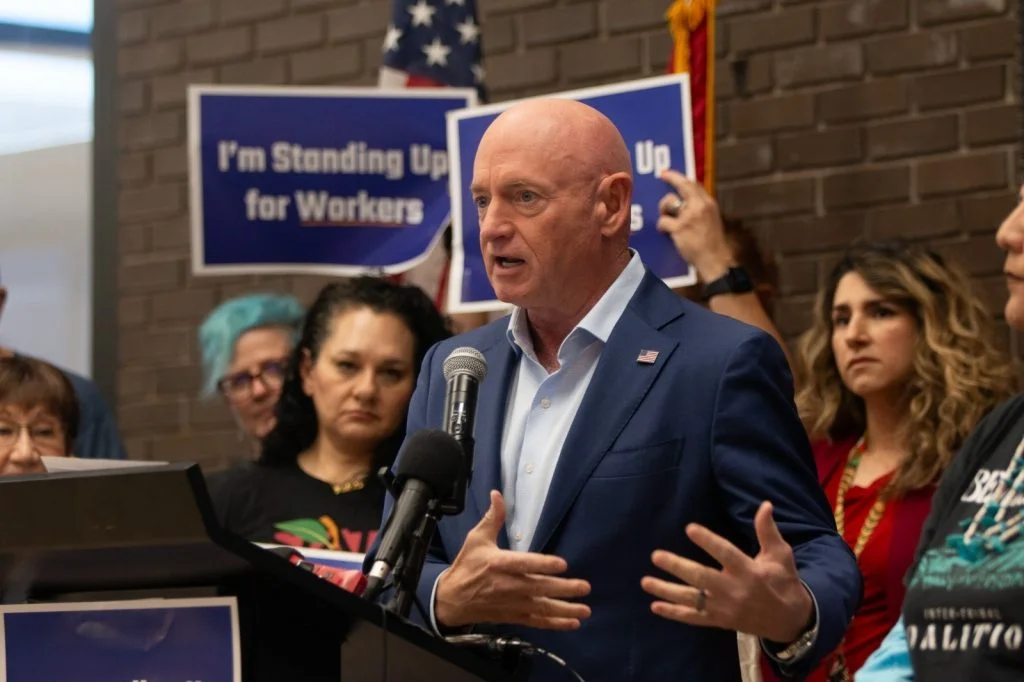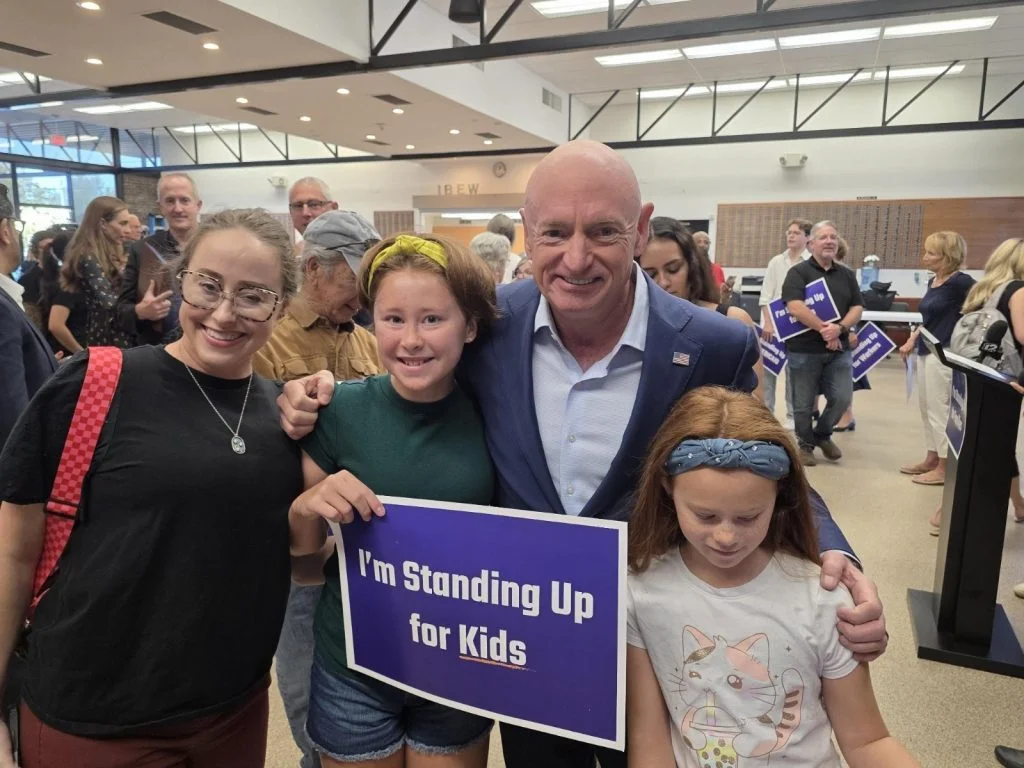ICYMI: In Phoenix, Kelly Stands with Arizona Families Following Passage of Trump’s Bill to Cut Medicaid and SNAP
See photos of the press conference here
In case you missed it, Arizona Senator Mark Kelly stood in Phoenix today alongside Arizona parents and children, seniors, and health care and food assistance providers a week after President Trump signed his “One Big Beautiful Bill.” In a press conference, Kelly highlighted that Trump’s law throws more than 300,000 Arizonans off their health care, slashes food assistance, leads to job losses in the renewable energy industry and higher utility costs, and adds nearly $4 trillion to the national debt, all to give a tax break to the wealthiest Americans.
Kelly was joined by Quianna Brown, a mother he met at a town hall he held earlier this year; January Contreras, president and CEO of the Children’s Action Alliance; Alexis Aguirre, a teacher at the Osborn Elementary School District; Wendy Armendariz, CEO of Neighborhood Outreach Access to Health (NOAH); Michonne Dietrich, a pediatric pharmacist;and Terri Shoemaker, executive vice president of the Arizona Food Bank Network.

“Even though Trump’s big bill has passed, the fight is far from over. In fact, for so many families, kids, and seniors in Arizona, the fight is just about to begin,” said Kelly in his remarks. “Sometimes those moments in history are easy to see. Wars, attacks, natural disasters. But this one is different. It won’t happen in a day. It will happen over years. Little by little, but in very big ways, it will get harder and harder for Arizonans. Harder to get by. Harder to take care of your aging parents. Harder to help your kids achieve their American dream.”
“For families like mine, this isn’t about politics. It’s about making sure our children have the support they need to grow up safely and with dignity. […] I don’t know how to explain to you the current feeling of hearing that your child needs a specialist and you can’t find one that doesn’t have a 6-month waiting list. […] My kids’ very life has been reduced to a line item, and it is pissing me off,” said Quianna Brown, a mother he met at a town hall he held earlier this year.
“What we know about this bill is that it does threaten the health and the financial security of parents and families throughout Arizona. […] Senator Kelly said the fight is not over, that’s exactly what’s in my head. The fight is not over because we have a lot of work to do at this point,” said January Contreras, president and CEO of the Children’s Action Alliance.
“I stand here today as a proud educator and the mother of two public school kids in Arizona. The majority of our families choose public schools, but we rank last in public education funding, 50th in the country. And yet, every day, from the cafeteria workers who feed our children breakfast to the bus driver who makes sure our kids get home safely from after school programs, we’re making miracles happen on a shoestring budget. […] We’re asking for the public education funding that every child in this country deserves a fair chance for their future,” said Alexis Aguirre, educator at the Osborn Elementary School District.

“Medicaid is the financial backbone for health centers, and if you take that away from health centers and from our community, it leaves all healthcare providers vulnerable, not just health centers. So, yes, these cuts are going to impact access to care, and that’s why we need to continue to advocate, continue to show up for families in our community,” said Wendy Armendariz, CEO of Neighborhood Outreach Access to Health (NOAH).
“Hospitals require funding in order to provide quality care for our patients, and when Medicaid funding is reduced, the widespread availability of all hospital resources—which include doctors, nurses, pharmacists, anybody who has contact with our patients or their families—these resources will be reduced all across the board, and this will just negatively impact the availability of care,” said Michonne Dietrich, a pediatric pharmacist.
“Last month, more than 700,000 people visited Arizona’s food banks for help. That’s an increase of 55% from just before the pandemic, when we were seeing 450,000 people. […] This bill implements work requirements to groups that have been indebted from them before, including people who are homeless and veterans. Those changes could go into that impact as early as September,” said Terri Shoemaker, executive vice president of the Arizona Food Bank Network.
See photos here.
